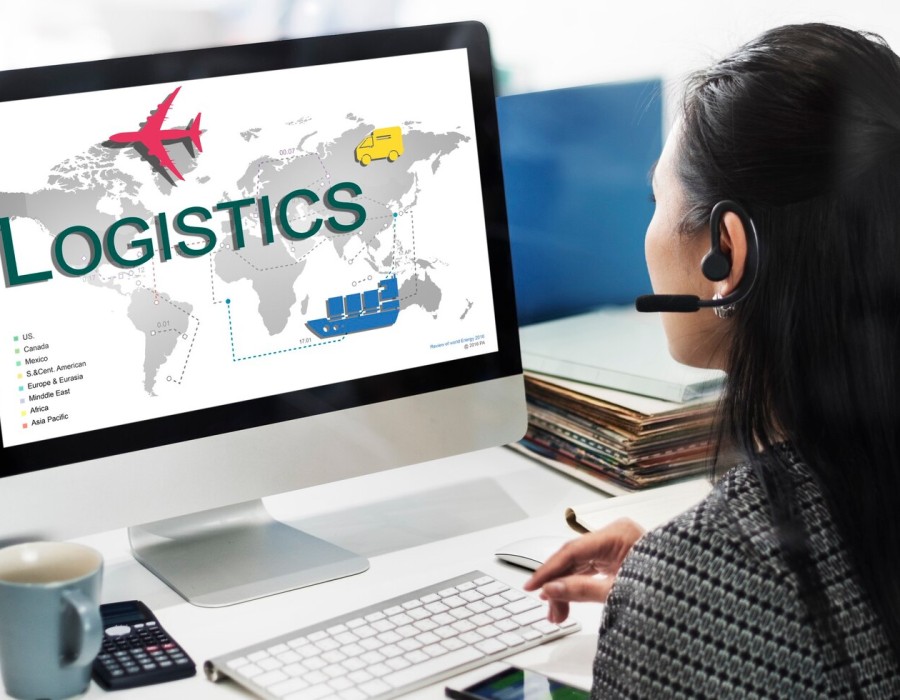In the fast-paced world of ecommerce, logistics management plays a crucial role in ensuring the smooth movement of goods from suppliers to customers. As online shopping continues to grow globally, businesses are increasingly turning to technology to streamline their operations, enhance customer satisfaction, and stay ahead of the competition. The integration of digital transformation services and IT logistics is reshaping the way ecommerce logistics is handled, making it more efficient, transparent, and scalable.
The Impact of Digital Transformation on Ecommerce Logistics Management
Digital transformation is more than just a buzzword—it is a business strategy that incorporates advanced technologies like artificial intelligence (AI), Internet of Things (IoT), machine learning (ML), and automation to improve operational efficiency. In the context of ecommerce logistics management, digital transformation enables businesses to optimize inventory, track shipments in real time, and predict delivery times with greater accuracy.
One of the key aspects of digital transformation in ecommerce logistics is the use of data analytics. By collecting and analyzing vast amounts of data from different points in the supply chain, businesses can identify inefficiencies, improve decision-making, and adapt quickly to changes in demand. This means faster response times, reduced operational costs, and improved customer experiences.
How Logistics IT is Streamlining Operations
Logistics IT refers to the use of technology to optimize various aspects of logistics, from inventory management to warehouse operations and transportation. With the rise of ecommerce logistics, the importance of IT logistics has grown significantly. Here are a few ways logistics IT is transforming ecommerce operations:
- Warehouse Automation: With the help of robotics and AI, ecommerce businesses can automate warehouse processes such as sorting, packaging, and inventory tracking. This reduces human error, speeds up processing times, and lowers labor costs, allowing businesses to scale operations without compromising on efficiency.
- Real-Time Tracking and Visibility: Customers expect fast, reliable, and transparent shipping experiences. With IT logistics solutions, businesses can provide real-time tracking of shipments, allowing customers to see exactly where their orders are at every stage of the journey. This increased transparency helps improve customer trust and satisfaction, leading to repeat business.
- Route Optimization: By leveraging data-driven algorithms, businesses can optimize delivery routes for efficiency and cost-effectiveness. Whether it’s through dynamic rerouting or predictive analysis of traffic patterns, logistics IT tools help reduce fuel consumption, improve delivery speed, and cut costs.
The Benefits of Technology in Ecommerce Logistics Management
- Increased Efficiency: Through automation, AI, and data analytics, ecommerce logistics is becoming more streamlined. Automation speeds up processes, reduces errors, and enables businesses to handle higher order volumes without additional human resources. This level of operational efficiency is critical in keeping up with the ever-growing demand in the ecommerce sector.
- Cost Savings: Technology helps businesses reduce operational costs by optimizing inventory management, minimizing warehouse errors, and cutting down on fuel costs through better route planning. Logistics IT solutions also allow businesses to predict demand more accurately, which helps avoid overstocking or understocking, thus reducing storage costs.
- Better Customer Experience: In today’s competitive ecommerce landscape, delivering an exceptional customer experience is paramount. With digital transformation, businesses can ensure faster and more accurate deliveries, real-time tracking, and clear communication, which ultimately leads to increased customer loyalty and satisfaction.
- Scalability: As ecommerce businesses grow, so do their logistics needs. Technology makes it easier to scale operations without sacrificing service quality. Automation, cloud-based systems, and integrated logistics IT solutions ensure that businesses can efficiently handle increased order volumes, new product lines, and expanded geographic reach.
The Future of Ecommerce Logistics: A Technology-Driven Landscape
As ecommerce continues to evolve, the role of technology in logistics will only become more important. With advancements in digital transformation and IT logistics, businesses can expect to see even more innovative solutions, such as drone deliveries, autonomous vehicles, and predictive AI algorithms that anticipate customer needs before they arise.
In the near future, the seamless integration of these technologies will make ecommerce logistics faster, more efficient, and more customer-centric than ever before. For businesses looking to stay competitive, embracing ecommerce logistics management solutions powered by cutting-edge technologies is essential for long-term success.
Conclusion
Incorporating technology into ecommerce logistics management is no longer optional—it is a necessity. By embracing digital transformation and investing in IT logistics, businesses can unlock new levels of efficiency, reduce costs, and deliver exceptional customer experiences. As the logistics landscape continues to evolve, staying ahead of the curve with the latest technological advancements will be key to thriving in the highly competitive world of ecommerce.





Comments